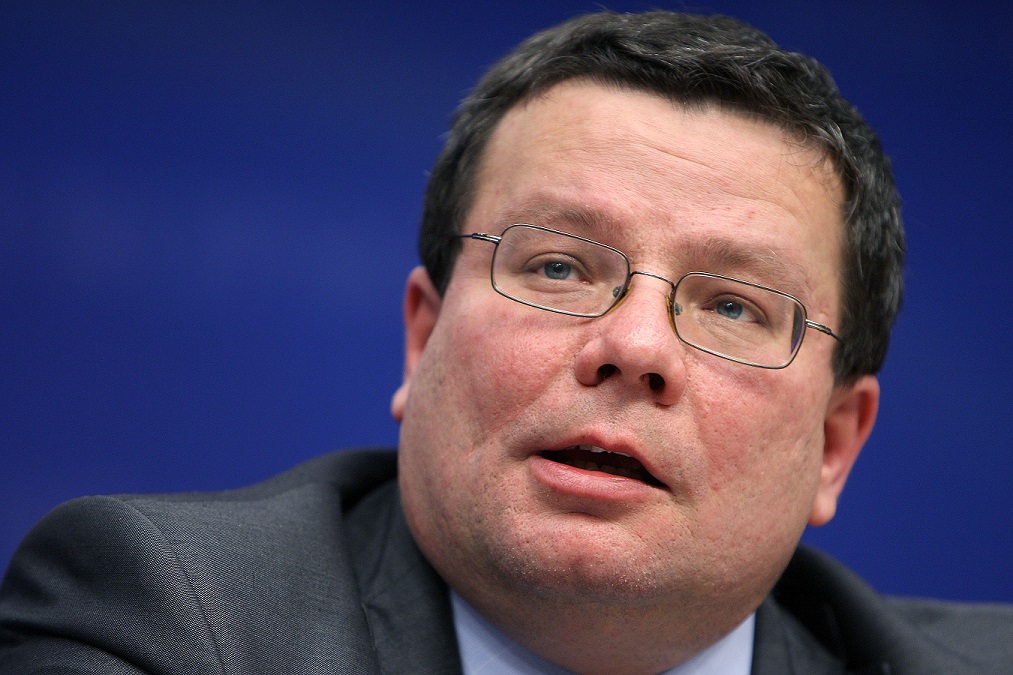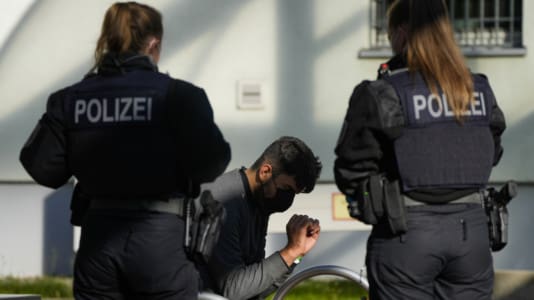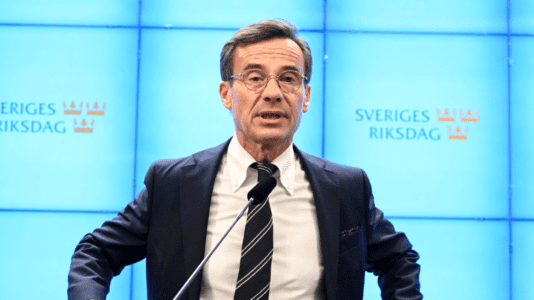Europe needs to have some “straight talk” with Germany about its role in the current energy crisis and the sharp rise in electricity prices, said Czech MEP Alexandr Vondra.
“The German energy policy of recent years is undoubtedly one of the main reasons. Of course, the gold medal for the biggest contribution to the sharp price rise goes to Vladimir Putin and Russia, but the silver medal belongs to the Germans, who greatly contributed to the situation with their decisions to leave nuclear power and coal and bet on cheap Russian gas,” said Vondra in the Salon of the Echo weekly and the Václav Havel Library in the Czech Republic.
“Now, they have also announced that they will pour €200 billion into a solo action to support their economy. That is what the Prague summit of the European Union was about last week,” he added.
Salon sought answers to the questions of how the Germans contributed to the energy crisis and how to solve it. In addition to Vondra, the chairman of the European industry association BusinessEurope, Radek Špicar, who worked for the Volkswagen automobile concern for years, and the diplomat Jan Sechter, who was the deputy ambassador in Berlin and the ambassador in Vienna and Warsaw, came to debate.
Answering the question on the German contribution to solving the current energy crisis and soaring prices, Vondra said that Germany has the lion’s share of both the causes and the effects.
“In society, not only in our country, there are people who use criticism of Germany to excuse the role of Russia in some way, so this is by no means my story. And I want to explicitly emphasize this – the gold medal for the biggest contribution to the energy crisis belongs to Putin. By launching a conquering, aggressive, arrogant, and illegal war, he added fuel to the fire that had already been started in Europe. Without a doubt, this is the main culprit of why energy prices are flying so high. However, when it comes to the causes of the crisis, Germany has the silver medal right behind Putin. For at least two reasons. Both result from their Energiewende, their new energy policy. Not only Angela Merkel is signed under it, but also Gerhard Schröder before her.”
Czech MEP Alexandr VondraVondra said there was a debate in the European Parliament on who Putin’s cronies are. The debate revolved entirely around Marine Le Pen. Meanwhile, Vondra thinks we must talk about Gerhard Schröder and Angela Merkel.
“By the way, we recently had a debate at the plenary session of the European Parliament in Strasbourg about who Putin’s cronies are. Everyone revolved around Marine Le Pen. Sure, you went to Moscow to collect money for the election campaign. So, I got out there, and I say: Everyone here, reach your conscience from left to right,” the Czech MEP said.
“Think of the billions that Gerhard Schröder mined there. His SPD on one hand, on the other Angela Merkel’s CDU for Nord Stream. Remember the profits the Dutch government made from gas there. The Germans contributed to the energy crisis twice. First, the hysterical departure from nuclear energy.
“They did this without consulting anyone in Europe. And it was a move that broke the energy market in Central Europe. As a result, the entire region lost a stable supply of electricity regardless of the weather and other circumstances. How renewable sources started on a large scale, especially windmills, which must be balanced in the system when it is not blowing. Just this year, there were quite a few days when there was no wind. Then it must be balanced in the energy system. And they have nothing but gas as a stable source. They bet on the Russian gas. Despite repeated warnings from the Poles, who described Nord Stream as a new Molotov–Ribbentrop pact,” Vondra added.
According to Czech lawmaker, the United States repeatedly warned the Germans sharply about the Nord Stream gas pipelines. Vondra warned them too. They always answered: “Sasha, don’t worry. This is a normal customer-producer relationship. We need each other.”
“A naive approach that was unable to read Russia in its full depth and context,” Vondra said. “The Germans took it purely for business purposes. With this policy, they undoubtedly put their heads in Putin’s noose. And he started messing not only with Poland and the Baltics but through Germany with the whole of Europe by just pulling and releasing the gas taps as he needed. These are the causes.”
Talking about the aftermath, Vondra said one of the causes of the crisis is that Europe abandoned future contracts, and spot trading began. One possible solution, he proposed, is to return to those long-term contracts and not deal with purchases via the spot market.
“I do not mean long-term contracts with Russia, but with all other suppliers,” Vondra explained. “United States, Canada, Norway, Algeria, Qatar, and Azerbaijan. If something like this started happening on behalf of the European Union, it would immediately send a signal to the markets. It will be made clear to investors that there will be price stability now.”
Vondra blamed the idea of green decarbonization on why this has not happened yet.
“The long-term contracts would send a signal that we will be burning gas for many years to come — not just the next three or four years. Everyone knows that we will burn gas, that there is no other way, but a long-term gas contract at a good price means 15 or 30 years.
“That brings us to the horizon, which the campaigners for a decarbonized world believe we will no longer need gas at that time. That there will be biogas and hydrogen everywhere. That carbon-free paradise. The Germans have built their energy policy like this and it is hindering others in Europe.”






